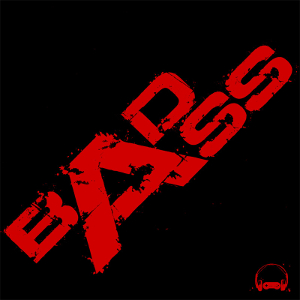Badass -Boss Themes-
 |
Album Title: Badass Boss Themes |
| Record Label: OverClocked ReMix |
|
| Catalog No.: OCRA-0030 |
|
| Release Date: December 6, 2011 |
|
| Purchase: Download at Official Site |
Overview
The enthusiastic musicians from OverClocked ReMix recently released their latest collaborative free album, BadAss: Boss Themes. Seventeen of the most iconic boss fight tracks from video games are assembled in BadAss: Boss Themes and as the title may indicate, it’s not for the faint of heart or delicate of the eardrum. If you like your guitars grinding and your vocals growled, you’re in for an hour and fifteen minutes of pure exhilaration. If you’re turned off by grind metal, power metal, thrash metal, or pretty much any other kind of metal, you may feel inclined to sit this ReMix out — but give it a listen anyway. There are some rather subtle tracks on the album that shine brighter because of the louder ones that bookend them.
Body
A quick look at the tracklist shows the range of the album. From cult favourites (Luca Blight from Suikoden II) to the iconic One-Winged Angel himself, OCR reaches far and wide for these boss themes. Cobra‘s “Real American Hero” opens the album and is a swirling epic of a cinematic piece, opening with wooden xylophones and strings before the heavy percussion and minor brass take over. Nutritious does an incredible job with this track from beginning to end, and it serves as a shining example of the type of polished work that OverClocked ReMix can deliver. Big Giant Circles contributes Donkey Kong‘s “Duel of the Apes” next, using the cheesy “Dun dun dun dun!” arcade intro as a bait and switch before an unhurried electric guitar melody soars over the accompanying bass, strings, and percussion. It is every bit the equal to the equally cinematic feel of G.I. Joe‘s “Real American Hero”, although the choral vocals might edge it slightly ahead since I never even considered using them for Donkey Kong.
The other tracks that follow in this more subtle direction are perhaps the most accessible to casual videogame music fans. Devil May Cry 3‘s “The Curse of Yamato” is a trippy but ominous piece that jumps between jazzy and deconstructionist orchestral feel while maintaining a bright, allegro tempo and a cinematic quality that endures throughout. Mega Man 3‘s “A Daring Escape” is a nicely produced track by Jago that mixes the spirit of The Magnificent Seven with The Great Escape, while still allowing Dr. Wily’s iconic melody to shine through.
The prize for understated subtlety is easily awarded to Kirby: Super Star‘s “The Last Dance”, which is one of my absolutely favorite stand outs from the album. Compared to the abrasive — but expertly arranged — guitars in The Legend of Zelda: Link’s Awakening‘s “Lights Out” and Metal Gear Solid 4‘s Routine of War, “The Last Dance” is positively ambient in its feel as its melody filters in between the sustained, drawn-out bassline. The Joker did quite an impressive job with this track and its only rival in terms of compositional complexity and subtle execution is Mazedude’s eminently enjoyable “Saren’s Prayer” from Mass Effect — a surefire favorite for fans and non-fans of the franchise.
This next sentence is difficult for me to type, as I am a dyed-in-the-wool Square Enix fanboy (who has two Final Fantasy inspired tattoos, I might add…) but I couldn’t help but think that Final Fantasy franchise is a touch over-represented here. With five of the seventeen tracks coming from Nobuo Uematsu, OCR could have spun them off into their own separate companion album. Final Fantasy VI‘s Kefka is nicely represented in “The Sound of a Thousand Voices Screaming in Unison,” which fires off with gritty, grinding guitars yet retains no trace of its more mercurial nature. Fans of the original theme and game will be delighted to hear a darker reimagining of the climactic theme, but a break for the silly bridge — which typified both the villain and theme — would have been nice. Gilgamesh’s “Master of Blades” is a bit too slow to fit in with the rest of the album, and the less said of guttural, strained vocals of Jecht’s “Dreams of Death” the better.
“BadAzz” takes Uematsu’s acid rock inspired One-Winged Angel and gives it the house music treatment with distorted, static vocals replacing the usual Latin lyrics with minor attention paid to the proper pronunciation. Most notably, the hard c in “facias” is consistently mispronounced as a lispy “s”. It’s not an entirely welcome change, although points to PrototypeRaptor for the ambitious idea and I’ll admit that the backbeat is pretty darn catchy. Following some mixed results, Final Fantasy VIII‘s “All Existence Denied” is my favorite of the five Final Fantasy themes. The spoken female dialog would have done well with a bit more vocal performance and a little less distortion. The threatening words of Ultimecia come off sounding like so much a community theatre line reading, but thankfully the ethereal piano melody that precedes it and truly excellent guitar work that follows compensates for the slight misstep.
Summary
One of the biggest criticisms that OverClocked ReMix’s talented remixers have faced in their various collaborative projects is that the finished album lacks a coherent sound. With BadAss: Boss Themes, the group has succeeded in creating an album unified in theme and sound that will jog fond memories of epic, grueling climactic battles with one-winged angels, deranged clown gods, and ill-tempered mechanical geniuses. While at times a bit too reliant on sophomoric growls and heavy guitar work and growls to carry the more obscure themes, BadAss: Boss Themes is a solid example of what the collaborative powerhouse that is OverClocked ReMix can deliver when they set their minds to it.
Do you agree with the review and score? Let us know in the comments below!
3.5
Posted on August 1, 2012 by Matt Diener. Last modified on January 22, 2016.














